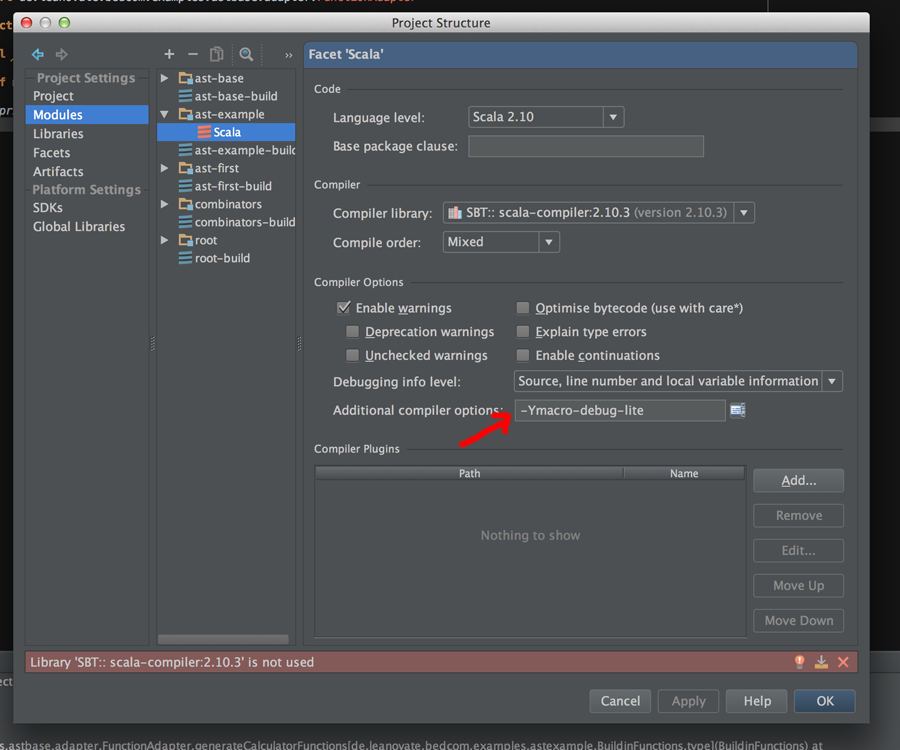Scala marcos: Getting started
Getting started: Hello world
1 import scala.language.experimental.macros
2 import scala.reflect.macros.Context
3
4 object HelloWorld1Macro {
5 def helloWorld() = macro helloWorld_impl
6
7 def helloWorld_impl(c:Context)() : c.Expr[Unit] = {
8 import c.universe._
9
10 reify {
11 println("Hello world")
12 }
13 }
14 }
1 object HelloWold1 extends App {
2 HelloWorld1Macro.helloWorld()
3 }
How to debug
- Use
-Ymacro-debug-lite option of the scala compiler
- Use
c.echo, c.info … to write your own messages to the compiler log

Splicing expressions
1 object HelloWorld2Macro {
2 def helloWorld(str: String): Int = macro helloWorld_impl
3
4 def helloWorld_impl(c: Context)(str: c.Expr[String]): c.Expr[Int] = {
5 import c.universe._
6
7 c.echo(str.tree.pos, "Do the hello world magic")
8
9 reify {
10 println("Hello " + str.splice)
11 str.splice.length
12 }
13 }
14 }
Somewhat more usefull example
1 object DebugMacro {
2 def debug(a: Any) = macro debug_impl
3
4 def debug_impl(c: Context)(a: c.Expr[Any]) = {
5 import c.universe._
6
7 val dump = show(a.tree)
8 val dumpExpr = c.literal(dump)
9
10 reify {
11 println(dumpExpr.splice + "=" + a.splice.toString)
12 }
13 }
14 }
1 object Debug extends App {
2 var a = 10
3
4 DebugMacro.debug(a)
5
6 DebugMacro.debug(2 * a)
7 }
Debug.this.a=10
2.*(Debug.this.a)=20



 Feed abonnieren
Feed abonnieren Newsletter abonnieren
Newsletter abonnieren